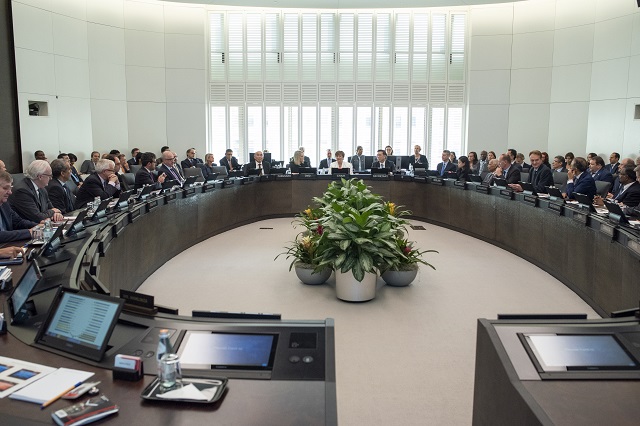May 18, 2020
- The IMF Executive Board decision allows an immediate release of US$280 million for Armenia.
- The augmentation of access will help the authorities contain short-term risks and will provide resources to meet the urgent human and economic implications of COVID-19 pandemic.
- To preserve macroeconomic stability, the authorities’ have taken a number of measures to mitigate the near-term impact of COVID-19 and remain committed to continued economic reform aimed at lifting inclusive and resilient growth and safeguarding social spending.
Washington, DC – The Executive Board of the International Monetary Fund (IMF) completed the second review of the Republic of Armenia’s performance under the program supported by the Stand-By Arrangement (SBA). Armenia’s three-year SBA of SDR 180 million (about US$248 million), equivalent to 139.75 percent of Armenia’s quota in the IMF, was approved by the IMF’s Board on May 17, 2019 (see Press Release No. 19/173).
The Executive Board also approved the authorities’ request to augment access under Armenia’s SBA arrangement by 100 percent of quota (SDR 128.80 million or about US$175 million), bringing overall access under the SBA arrangement to SDR 308.8 million (around 240 percent of Armenia’s quota). The augmentation and completion of the review will make SDR205.94 million (about US$280 million) immediately available.
The impact of the COVID-19 pandemic and the tightening of global financial conditions have disrupted Armenia’s above-trend growth and favorable economic conditions. The near-term outlook has significantly weakened, with fiscal and current account deficits widening considerably this year. The Fund’s financial support will help Armenia meet these challenges, including the urgent social and economic implications of COVID-19 pandemic.
Read also
Following the Executive Board discussion, Mr. Tao Zhang, Deputy Managing Director and Chair, made the following statement:
“Following a strong performance in 2019, the Armenian economy was hit hard by the COVID-19 pandemic. The government has proactively responded to the crisis, adopting widespread containment measures while supporting vulnerable individuals and firms in the most affected sectors.
The fiscal deficit is projected to widen considerably in 2020, reflecting the impact of the cycle on revenues and higher current spending for healthcare and economic support to vulnerable households and firms. The authorities are committed to pursuing their medium-term goal of debt sustainability once the crisis abates, and public debt is expected to decline over the medium-term in line with Armenia’s fiscal rule, while maintaining space for investment and social spending.
The Central Bank of Armenia responded to the crisis by balancing its mandates for price and financial stability. To support the economy, the central bank lowered its policy rate and ensured ample market liquidity. It also intervened to limit excessive exchange rate volatility.
Implementation of the authorities’ reform agenda will bolster sustainable and inclusive growth. This includes efforts to establish a holistic anti-corruption framework, improve the business climate and support small and medium-sized enterprises, and strengthen the health and education sectors.
The augmentation of access under the Stand-by Arrangement will provide much needed support, allowing the authorities to mitigate the pandemic and support affected households and businesses.”
IMF Communications Department

























































